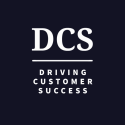Top 5 Skills of Highly Effective Customer Success Professionals

I made a post on Linkedin this week about the 5 soft skills any Customer Success pros should focus on that got much traction, and wanted to cover the topic more in-depth with you in today’s edition.
In fact, I was expecting such reactions as you probably know that Customer Success is the hottest and fastest-growing job in the world!
There has never been a better time to join this exciting function than right now and many professionals with various backgrounds are taking the leap and making the transition into CS: teachers, social workers, support, and service people just to name a few.
And those who are already confirmed as top CS professionals at their current positions keep advocating for ways to improve and get better in driving success with customers.
While we are in one of the most exciting times for the CS function, it’s yet important to keep in mind a few fundamental skills to succeed.
This is why I wanted to explore some of these core skills I believe any Customer Success professional must live by and also develop along the way.
Now go grab a cup of coffee, sit back, relax and let’s get started!
1/ Customer focus

First things first: there is no way for you to ensure your customers’ success without adopting first a customer-centric approach in every single action you take or strategy you implement. Obvious, isn’t it?
Any company out there would say they are customer-oriented but it takes more than just an affirmation.
Saying you deliver a superior experience does not mean you actually deliver it in practice.
And it all starts with understanding your customers’ business and the challenges they want to solve.
Being customer-centric is to think about your approach in the long run, in comparison to the firefighting, short-term ways of running daily operations.
To me, a customer-centric CS professional is the one who:
- places the customer at the center of every decision being made.
- acts with integrity and respect for their customers at all times.
Simply said, people working in Customer Success are those who always act with their customers’ needs in mind.
This is great,
but how does it translate in your day-to-day activities and what are the key actionable items you can put into practice?
Here are 10 fundamentals I’d recommend you prioritize at all times:
- put yourself in your customers’ shoes and show genuine interest in their business and challenges.
- Ensure you involve your customers’ opinions in your action plan, making sure they are part of the proposed solution.
- commit to your promise, and stick to it. But do not make any promise you cannot keep!
- make sure what you say is consistent across all channels. Do not say one thing in an email and the opposite in this other meeting for example.
- recognize when you make a mistake and suggest a remediation plan to get it recovered.
- Listen to understand what your customers have to say, not just respond.
- Keep in mind that the perceptions your customers have of your relationships are true. Don’t deny but accept and do whatever you need to correct this perception to make it become a reality.
- Collect your customers’ feedback whenever possible, usually after major milestones so you can track, measure, and improve.
- As a CS pro, you must also be accessible. Don’t wait too long before responding back to your customers. Any feedback is better than no feedback at all!
- Finally, stay alert and reach out to your customers proactively without necessarily waiting for them to ask for something specific.
So now that we’ve set the foundations solid, let’s see how you can start building upon it!
2/ Empathy

This is one of the top skills of a highly effective Customer Success professional and also one of the main reasons why people love Customer Success.
The ability to assess the situation with your customer’s perspective in mind is critical to building trust and strengthening your relationships.
In fact, it’s one of the five key components of Emotional Intelligence:
- self-awareness
- self-regulation
- motivation
- social skills
- and empathy.
One thing I see people confusing often is showing sympathy rather than what we are looking for here: being empathetic.
Indeed.
Sympathy is only an acknowledgment of another person’s feelings. As Dr. Brené Brown sums it up well: “Empathy fuels connection. Sympathy drives disconnection.”
I’d highly encourage you to listen to her latest podcasts or read her book “Dare To Lead” where she goes deep into these behavioral topics which are fascinating to me.
Think of empathy as this superpower making people feel connected and included, whereas showing sympathy for someone suggests you have some kind of power over the other person. This could be misleading and get people to feel more isolated and overall, disconnected from you and the context.
The most empathetic leaders are those who spend time listening more than they do talking.
Demonstrating empathy with everyone around you will lead to positive outcomes, build trust, stronger and more connected relationships.
And yet you would think this should be enough to overcome any challenging situations.
But it’s not.
I’d argue that it also requires some ego to succeed as well.
Empathy AND Ego
People with lots of empathy but too little ego maybe those everyone likes and wants to become friends with.
You think they would be top achievers but they are not.
They get along with the customer and understand their concerns. But as they get deeper into the conversation, they lack the ego to make customers take an action.
On the other hand, the person with too little empathy but way too much ego fails to understand the context, almost every time misses the fact that it’s not a contest where one wins and the other loses.
But, either both win together, or lose.
The key here is finding the right balance between empathy and ego.
So how does it work in practice?
Here are 2 easy steps you can apply to demonstrate empathy in your day-to-day interactions.
Simply said:
1) consider the situation from the other person’s thoughts
Ask yourself:
“If I was in his/her position, how would I possibly think about it?”
2) focus on your counterpart’s feelings
“If I was him/her, how would it make me feel?”
Research shows that empathy produces higher levels of cooperation.
But on the opposite, a lack of empathy is the worst-case scenario for any type of communication.
For example, studies also show that receiving rude emails at work often leads to extreme stress and even spills over into people’s personal lives!
So in summary, practicing empathy at all times is beneficial for all, in particular for Customer Success professionals who are on the front lines with customers on a daily basis.
Practicing empathy will help you find common ground for discussions and build the partnerships you want to nurture.
It’s the fastest way for you to become great in everything you undertake!
Now that we’ve laid down the core principles, it’s time to reach out and engage.
3/ Communication

Your customers know that you don’t have an answer to every single request they will make and that’s perfectly okay. However, they do expect you to deliver the best experience possible and to set up plans to address their specific needs.
Whether it be for running presentations or bringing a topic to another functional department, you need to be able to build the story around the given context.
Let’s take the example of a customer asking you for a new product feature.
You will certainly not just reach out and tell the Product Management teams that your “customer needs or wants that feature”.
The answer you’ll get will most probably be something like:
“why? we have other top priorities at the moment” or “we need more context, please elaborate!”.
So, it’s imperative for you to describe the customer’s request in detail by explaining the business case and the reasons why this would make sense both for the customer and your company along with its economic impact and risks in not doing so.
Here’s an example of how I’d recommend bringing this to the product team:
”My customer is XX with $$ in recurring revenue. They have an internal resource spending 10+ hours every single week to manually update our XX field. In failing to do it properly, they risk losing their security certificate which would impact their overall business as a company.
Therefore, if we could automate the way this field is populated based on what we already have as information on our platforms, not only my customer could save XX hours of tedious labor, but it would also help all our other customers.
This would result in greater customer satisfaction and increase usage of our products, hence generating more potential business opportunities.”
You also have to respond and follow up promptly to your customer’s requests.
This alone will show you are dedicated to your customer’s concerns and that you are actively engaging teams to identify solutions to your customers’ needs.
Overall, it’s critical for you to be clear, precise, on point, short and sharp in every one of your communications: emails, phone, meetings, 1:1, business reviews, and so on.
But not all of this is possible if you fail to build strong relationships both internally and with your customers.
And your ability to influence people to reach your own goals will be key to your success.
4/ Influence

One of the top critical and strategic skills I’d recommend anyone to work on improving.
At any point in time, you need to influence people in their decision-making process to get what you need in return.
Internally, this is required to ensure you’ll get the right resources and engagements from other functional business units.
For example: securing a marketing budget, getting a new headcount, or the buy-in for a project, and so on.
And when it comes to your partnerships with your customers, it will also be key to help them evaluate and take the best path forward.
One of my top references on that topic is Robert Cialdini, a professor of psychology at Arizona State University. He wrote a book on that specific topic called “Influence” which I’ve found so powerful and game-changing!
There are so much of learnings in this amazing book that I wanted to highlight just 4 of the 6 most impacting principles of effective influence you can apply in your interactions both internally and with your customers:
1) Reciprocity
As human beings, we tend to return the favor someone does for us.
So next time you help somebody and they say “thank you”, don’t just say you’re welcome, but “you would do the same for me”.
It’s just a life-changing tip I’d encourage everyone to try.
And I guarantee you: it works!
2) Authority
We take actions based on the trust and credibility we give to our counterparts.
So before listening carefully to what someone else has to say, there are 2 questions we want to answer first:
- Can I trust him/her?
- Does this person know what he/she is talking about?
The answer to these two questions must be YES!
This is even more true when it comes to building your personal or company brand online. You can build the best product in the world but if people don’t trust you or give you credit for your expertise, you’ll have a hard time distributing your solutions.
In the previous edition of my newsletter, I explored the way building authority online could help you grow your own personal audience and the huge benefits it could have for you.
Check it out!
3) Consensus
We are most influenced by actions that are similar to us.
For example, if you introduce your customer to another one in a similar industry going through some similar challenges, they are most likely to take action with the expectation of getting similar outcomes.
It’s even more relevant when you apply this to your most hesitating customers.
This is why I always recommend inviting customers to join discussions with their peers who have or had similar business challenges.
It’s then likely they will take action based on the other company’s experiences.
But overall, do not make your customers feel trapped and forced to take an action.
The impulse should come from themselves based on your ability to influence during your conversations.
4) Success Stories, testimonials
Finally, make sure you communicate your customer success stories publicly across all channels, especially on your web pages where it’s the most visible, along with a genuine testimonial.
The reason is simple: customers will give you credit based on what others are saying about you.
And ironically, those who write a testimonial for you become also your most fanatic supporters!
You should also share and discuss these stories internally with your teams. It will boost their confidence, motivation, and productivity while providing them with the opportunity to learn and grow.
5/ Teamwork

It’s a proven fact that working as a team on a given topic leads to better results, feeling that we are supported and encouraged as individuals.
To me, working as a team is the best way to boost not only your personal growth but also your satisfaction at work.
Every one of us has unique skills, passions, and talents.
What makes teamwork so powerful is the combination of all these individual skills for a common purpose.
And that’s something I believe is an absolute benefit for you and the company!
Working as a team does not mean you have to put your own skills aside of course. The key is to bring in your unique skills to contribute to a common objective.
This is the reason why I’ve recommended replacing the pronoun “I” with “We” in my Linkedin post here.
Working as a team is the best opportunity for you to learn from each other, get immediate feedback on your strengths and areas you need to develop, boosting your creativity along the way.
The differences in every team member’s own experiences will provide you with more perspectives.
But, to have all these dynamics aligned perfectly, you need to come up with a vision and common goals for your teams, and clearly identify the roles of each team member.
In practice, here is how to encourage great teamwork:
- set common objectives and specific achievable targets
- give credit to your team members’ work
- ensure an inclusive work environment so that every single member of the team feels free to express their ideas.
- celebrate milestones and people’s performances publicly
- finally, have fun all together, regularly!
– Hakan
Subscribe to my weekly Customer Success Café newsletter below!

Hakan Ozturk
Founder, theCScafe.com, #1 Weekly Customer Success Newsletter
Hakan Ozturk is a Paris-based Customer Success leader with over 15 years of experience in the computer software industry. Passionate about driving growth and delivering value to strategic customers, Hakan has established himself as a trusted industry expert. As the Founder of The Customer Success Café Newsletter and TopCSjobs.com, Hakan provides valuable industry insights and daily-updated job opportunities worldwide in the field of Customer Success. Connect with Hakan to boost your career in CS and your company’s potential for massive growth.

Leave a Reply